
Severo Aguilar Gabriel is a Bolivian politician and trade unionist who served as a member of the Chamber of Deputies from Potosí, representing circumscription 41 from 2010 to 2015. A member of the Movement for Socialism, he previously served as a member of the Constituent Assembly from Potosí, representing the same circumscription from 2006 to 2007.

Ángel David Cortés Villegas was a Bolivian educator, politician, and trade unionist who served as a member of the Chamber of Deputies from Potosí, representing circumscription 37 from 2010 to 2015.

Luis Gallego Condori is a Bolivian lawyer and politician who served as a member of the Chamber of Deputies from Potosí, representing circumscription 39 from 2010 to 2015.

Samuel Plata Plata is a Bolivian auto mechanic and politician who served as a member of the Chamber of Deputies from La Paz, representing circumscription 22 from 2010 to 2015. Born in a peasant community in the Altiplano plateau, Plata scaled the ranks of traditional leadership, serving as president of the Chuncarcota school board, mallku of his Aymara township, and finally, jach'a mallku cantonal of the three ayllus in the Urinsaya Marka, the sector's highest indigenous authority. Plata's prominent local presence led regional peasant sectors to nominate him as their representative in the Legislative Assembly, with the Movement for Socialism sponsoring his successful candidacy for a seat in the Chamber of Deputies.

Franz Gróver Choque Ulloa is a Bolivian industrial engineer, lawyer, and politician who served as vice minister of employment, civil service, and cooperatives from 2019 to 2020. A member of the Social Democratic Movement, he previously served as a party-list member of the Chamber of Deputies from Oruro from 2010 to 2014 on behalf of the National Convergence alliance and as a member of the Constituent Assembly from Oruro, representing circumscription 32 from 2006 to 2007 on behalf of the Social Democratic Power alliance.

Pedro Montes Gonzales is a Bolivian mineworker, politician, and trade unionist who served as senator for Oruro from 2015 to 2020. A member of the Movement for Socialism, he previously served as executive secretary of the Bolivian Workers' Center from 2006 to 2012.

Carmen Leonor Rodríguez Bolaños is a Bolivian economist, politician, and trade unionist who served as a party-list member of the Chamber of Deputies from La Paz from 2010 to 2015.
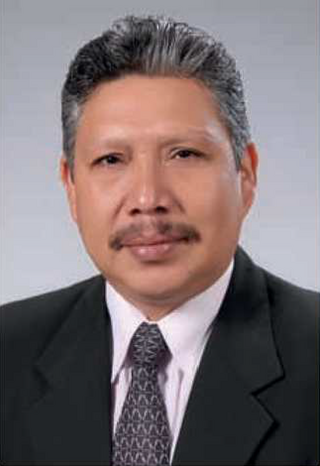
Edgar Luis Fernández is a Bolivian cab driver, politician, and trade unionist who served as a party-list member of the Chamber of Deputies from Santa Cruz from 2010 to 2015.

René Vidal León was a Bolivian politician and trade unionist who served as a party-list member of the Chamber of Deputies from Chuquisaca from 2010 until his death in 2012. He previously served on the Sucre Municipal Council from 2000 to 2004.
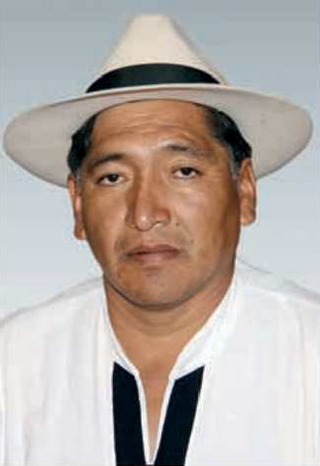
Freddy Germán Huayta Véliz is a Bolivian community organizer and politician who served as a party-list member of the Chamber of Deputies from Oruro from 2010 to 2015.
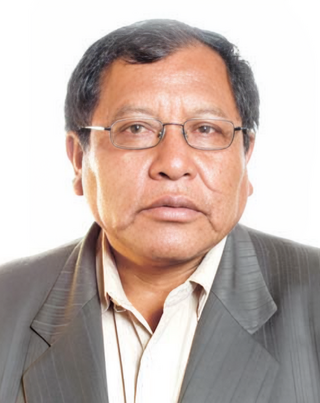
Mario Choque Gutiérrez is a Bolivian economist and politician who served as senator for Oruro from 2010 to 2015.
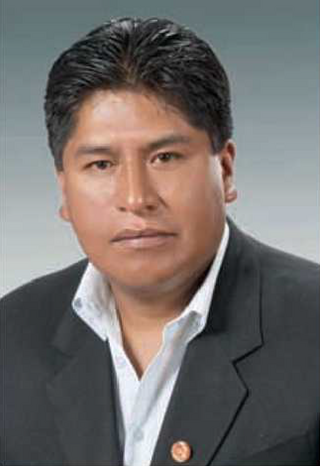
Osvaldo Guillermo Torrez Arisaca is a Bolivian community organizer and politician who served as a member of the Chamber of Deputies from La Paz, representing circumscription 11 from 2010 to 2015.

Patricia Mancilla Martínez is a Bolivian politician and trade unionist who served as a party-list member of the Chamber of Deputies from La Paz from 2010 to 2015. A member of the Movement for Socialism, she previously served on the Cairoma Municipal Council from 2000 to 2005.

Ninfa Huarachi Condori is a Bolivian politician and trade unionist who served as a party-list member of the Chamber of Deputies from Tarija from 2010 to 2015.

Donato Rubén Callisaya Mayta is a Bolivian politician and trade unionist who served as a party-list member of the Chamber of Deputies from La Paz from 2010 to 2015.

Ana María Sempértegui Valdez is a Bolivian accountant and politician who served as a party-list member of the Chamber of Deputies from La Paz from 2010 to 2015.

Nelly Núñez Zegarra was a Bolivian nurse and politician who served as a member of the Chamber of Deputies from Oruro, representing circumscription 32 from 2010 to 2015.
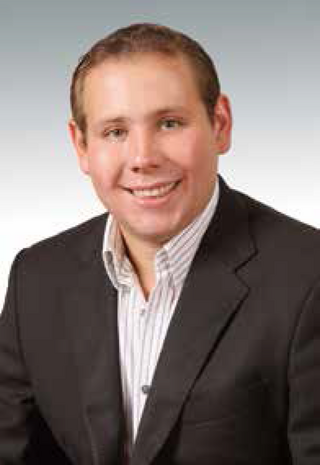
Carlos Eduardo Subirana Gianella is a Bolivian lawyer and politician who served as a member of the Chamber of Deputies from Santa Cruz, representing circumscription 50 from 2010 to 2015.

Jorge Adalberto Choquetarqui Jahuircata is a Bolivian community organizer and politician who served as a party-list member of the Chamber of Deputies from La Paz from 2010 to 2015.

Rodolfo Calle Inca is a Bolivian small businessman, lawyer, and politician who served as a party-list member of the Chamber of Deputies from La Paz from 2010 to 2015.




















